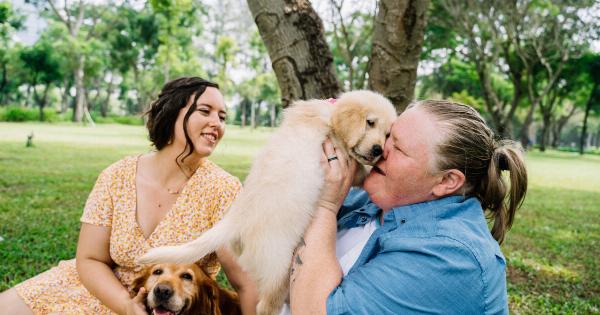Choosing a greyhound breeder can greatly impact your chances of success, whether you are looking for a racing champion or a loving family pet.
A reputable breeder can provide you with a healthy and well-adjusted greyhound that fits your needs and lifestyle. However, finding the right breeder requires careful consideration and research. In this article, we will explore the essential factors to consider when selecting a greyhound breeder, helping you maximize your chances of success.
1. Reputation and Experience
When looking for a greyhound breeder, reputation and experience should be your top priorities. Seek breeders with a proven track record of producing healthy, quality greyhounds.
Ask for references and testimonials from previous buyers or other greyhound enthusiasts. Experienced breeders possess in-depth knowledge about the breed as well as proper breeding practices, which significantly increases the chances of success.
2. Health Testing and Screening
A reliable greyhound breeder will prioritize the health of their dogs and conduct thorough health testing and screening.
Health issues such as hip dysplasia, eye disorders, and cardiac problems can be hereditary, so it is crucial to select a breeder who ensures their breeding dogs are free from these conditions. Ask the breeder about the health testing they perform and request to see health certificates for the parents of the puppies.
3. Breeding Goals and Ethics
Understanding a breeder’s goals and ethics is essential to ensure they align with your expectations. Some breeders focus on producing fast racing greyhounds, while others prioritize temperament and suitability as pets.
Clarify your own objectives and find a breeder whose breeding program matches these goals. Additionally, reputable breeders follow ethical guidelines and ensure the well-being of their animals by providing proper socialization, enrichment, and veterinary care.
4. Kennel Conditions and Socialization
An ideal greyhound breeder should maintain clean and well-maintained kennel conditions. Dogs should have access to spacious and comfortable living areas with appropriate shelter and protection from extreme weather conditions.
Additionally, the breeder should emphasize socialization, exposing the puppies to different sounds, objects, and people from an early age. This socialization plays a crucial role in their development and helps prepare them for various environments.
5. Breeder Support and Guidance
A reputable breeder will offer ongoing support and guidance to ensure the well-being of the greyhound puppies they have sold.
They will be available to answer any questions or concerns you may have about your new greyhound and provide guidance on training, nutrition, and overall care. This support system can greatly contribute to your success as a greyhound owner.
6. Visit the Breeder in Person
Before making a decision, schedule a visit to the breeder’s facility in person. This will give you the opportunity to observe the overall conditions and interaction between the dogs and breeder.
Pay attention to how the breeder interacts with the dogs and the level of care provided. Trust your instincts, and if anything feels off or raises concerns, consider looking for another breeder.
7. Pedigree and Bloodlines
While pedigree and bloodlines do not guarantee success, they can provide insights into a greyhound’s potential. Research the bloodlines of the breeding dogs to determine if they have a history of successful racing or desirable traits.
However, keep in mind that individual genetics and environmental factors also play significant roles in a greyhound’s success.
8. Breeder’s Involvement in the Greyhound Community
Reputable breeders are often actively involved in the greyhound community. They may participate in dog shows, racing events, or other activities related to the breed.
Involvement in the community indicates a dedication to the breed’s wellbeing and a commitment to maintaining high breeding standards. Additionally, being part of the community allows breeders to stay up-to-date with the latest advancements and trends in greyhound breeding.
9. Contracts and Health Guarantees
Ensure that the breeder provides written contracts clearly outlining the terms of sale, as well as any health guarantees or warranties. Understand the breeder’s policy regarding future health issues or any genetic conditions that may arise.
A responsible breeder will stand behind their puppies and be willing to take them back or offer assistance if necessary.
10. Consider Rescue and Adoption
If your primary focus is to provide a loving home for a greyhound rather than specific breeding goals, consider adopting a greyhound from a reputable rescue organization.
Many retired racing greyhounds are in need of loving homes, and adopting one can be a rewarding experience. Rescue organizations often have experienced foster families who can guide you through the adoption process and provide ongoing support.
Conclusion
Choosing the right greyhound breeder is vital for maximizing your chances of success as a greyhound owner. Take the time to research and evaluate breeders based on reputation, experience, health testing, ethics, socialization, and support.
By selecting a breeder who aligns with your goals and values, you can find a healthy and well-adjusted greyhound that brings joy and fulfillment to your life.






























